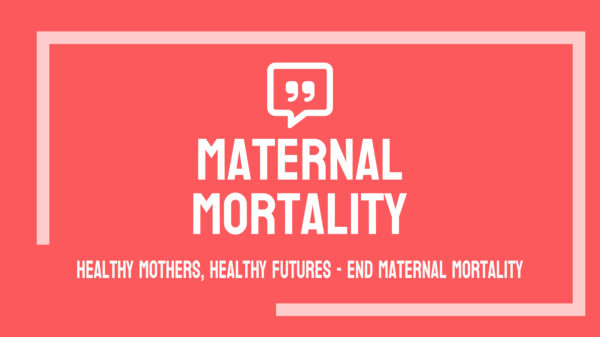|
Getting your Trinity Audio player ready...
|
Since Robert F. Kennedy Jr. was confirmed as secretary of health and human services, the U.S. Department of Health and Human Services and its subordinate agencies have cut billions in already approved funding for COVID-era programs as well as research projects the department has classified as “woke” or related to “DEI.”
In a public statement, HHS spokesperson Andrew Nixon said “the COVID-19 pandemic is over, and HHS will no longer waste billions of taxpayer dollars responding to a non-existent pandemic that Americans moved on from years ago.”
Nixon also claimed in another statement the “terminated research grants are simply wasteful in studying things that do not pertain to American’s health to any significant degree, including DEI and gender ideology.”
According to one spreadsheet of terminated grants published last Friday, HHS has cancelled $239 million of funding for Alabama-based research projects and public health programs so far. The cut funding was split between the ten programs listed below. All dollar amounts reflect total remaining funding at time of termination.
- $188,447,471.93: Epidemiology and Laboratory Capacity grants to the Alabama Department of Public Health
- The description of this award lists “Foodborne, Waterborne, Enteric and Environmental Diseases,” “Influenza Surveillance,” “Vaccine Preventable Diseases” and “Legionella Prevention” among the projects that the grant application would help cover.
- It also states that the grant will help improve Alabama’s “capacity for rapid pathogen identification, patient diagnosis and treatment, and continued improvement to survey for communicable, vector-borne, zoonotic, emerging, re-emerging, and unanticipated infectious diseases of public health importance.”
- $15,115,509.12: Mental health block grants to the Alabama Department of Mental Health under the American Rescue Plan
- The American Rescue Plan allocated $1.5 billion for the Substance Abuse and Mental Health Services Administration to divide between state agencies through SAMSHA’s community mental health services block grant. The stated purpose is to “support the grantees in carrying out plans for providing comprehensive community mental health services.”
- A 2019 application for a mental health block grant from the Alabama Department of Mental Health before the expansion of the program by the American Rescue Plan listed establishing a “Self-Directed System of Care,” “Community Integration” and “EBPs/Best Practice” as the department’s top three priorities. EBP stands for evidence-based practice.
- $14,883,214.13: Funding for vaccines for children given to the Alabama Department of Health
- Earmarked for the Immunization Division, or IMM, of the Alabama Department of Health, this funding was described as supporting the Vaccines for Children and Section 317 vaccine programs. Vaccines for Children provides free vaccinations to Native American children as well as children who are on Medicaid, who are uninsured or underinsured, and whose health insurance does not cover vaccinations.
- $11,083,126.83: Addressing COVID-related health disparities in high risk and underserved communities
- This grant was focused on addressing the especially heavy toll of COVID-19 on racial and ethnic minority populations and rural communities.
- The description of the grant mainly discusses improving monitoring capacities, including “activities to expand COVID-19 testing in homebound, incarcerated and disabled populations,” and using culturally targeted messaging.
- $7,711,482.03: Substance use block grants to the Department of Mental Health funded during 2020 and 2021
- One annual report on Substance Use Prevention, Treatment and Recovery Services block grant programs prepared for the Alabama Department of Mental Health by the OMNI Institute records that 327 “interventions” were executed in the 2024 fiscal year. These interventions included suicide awareness media campaigns, drug take back events and the Strengthening Families Program.
- According to the report, these interventions affected millions of people and were organized by 15 different providers that received substance use prevention block grant money the Alabama Department of Mental Health distributed.
- $1,024,220.17: Funding to research “Adaptive Immunity and Persistent SARS-CoV-2 Replication” at the University of Alabama Birmingham
- This funding was supporting a research project by Suresh Boppana, a doctor specializing in pediatric infectious diseases. Inspired by apparently elevated rates of virus shedding amongst children undergoing chemotherapy or with hematologic disorders, the study is attempting to “define the relationship between adaptive immunity and virus replication/shedding.”
- $704,545.73: Funding for research on treating eating disorders in “sexual minority individuals”
- Based on prior research that shows non-heterosexual people are as much as three times more likely to develop eating disorders, this study proposed to use a randomized controlled trial to test “Promoting Resilience to Improve Disordered Eating,” a suggested treatment to help alleviate eating disorder symptoms among members of sexual minorities.
- $461,951.26: Funding for a study at the University of Alabama Birmingham on how sex hormone and gender identity affect pain sensitivity
- Described as the “first exploration of the impact of gender identity, sex assigned at birth and hormonal status on quality of life, pain sensitivity and immune cell activity in trans individuals,” the researchers behind this project are attempting to determine the causes of lower pain thresholds in female patients by comparing cisgender and transgender men and women’s biological and subjective responses to painful stimuli.
- $227,217.26: Funding for a predoctoral program meant to help improve healthcare for sexual and gender minorities in the South
- This funding was going to support predoctoral researchers at the UAB with “exceptional research and community engagement skills in advancing sexual and gender minority health equity in the Deep South.” It was meant to fund fifteen predoc positions over five years.
- $0.33: The remaining funding for a University of Alabama at Birmingham-based animal study on the effects of sex hormones on kidney disease
- An outlier given how little federal funding remained when this project was officially cancelled, this study may have been targeted due to its grant description stating that “long-term administration of hormones, particularly cross-sex administration reflecting the status of transgender individuals, has been minimally studied.”
- A project by UAB Associate Professor Lisa Curtis, who has been studying the renal system for over two decades, this research is meant to help explain the “mechanisms that underpin resistance of females to renal injury.”
In a video posted to social media last week, Congresswoman Terri Sewell said “we will lose personnel in county health departments all across the state of Alabama” because of the loss of Epidemiology and Laboratory Capacity grants.
She also described the state Department of Health as “scrounging to find alternative funding” and said she hoped Alabama’s senators would speak up for the state health system.
Freshman Democratic Representative Shomari Figures similarly tweeted that “Alabama has basically the worst health outcomes in the country and this will make it worse.”
Neither Senator Tuberville or Senator Britt have spoken publicly on HHS’ cuts to public health grants and research funding yet, but Tuberville recently retweeted a post praising the layoffs Kennedy has overseen at HHS.
Despite the apparent scale of these cuts, a spokesperson for the Alabama Department of Health says that the department has already been preparing for an end to COVID era funding levels. “ADPH will continue to review its plans and take measures to protect and promote the health and well being of the citizens of Alabama,” she stated.
Auburn University, the University of Alabama at Birmingham and the Alabama Department of Mental Health have not made public statements on the funding cuts at time of publication.




















































